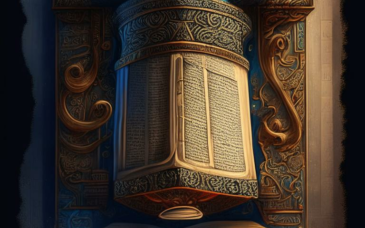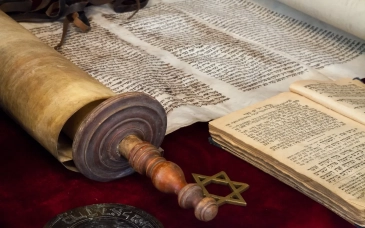Chapter Eight
This chapter discusses the signs that Moses performed and why he performed them, and that he did not do so to make the people believe in him.
1) The Children of Israel did not believe in Moses [solely] because of the signs he presented, for someone who believes [in a prophet solely] because of the signs he presents is tainted, for it could be that his signs are performed by means of spells and witchcraft. All the signs that Moses performed in the wilderness were done so according to the needs of the moment, and not to bring proof to his prophecies. There was a need to sink the Egyptians, so Moses split the sea and drowned them in it; the Children of Israel needed food, so Moses brought down the manna for them; they needed water, so Moses split the rock for them; Korah and his followers rebelled, so Moses opened up the ground and they were swallowed up. The same principle applies with all the other signs. It was the assembly at Mount Sinai that made them believe in Moses, when our eyes, and no-one else's, saw, and our ears, and no-one else's, heard, and Moses drew near to the darkness, and the voice spoke to him, and we heard it saying to Moses, "Moses, Moses, go tell them such-and-such". In connection with this it is written, "The Lord talked with you face to face", and it is also written, "The Lord did not make this covenant with our fathers, but with us, even us". From where is it known that the assembly at Mount Sinai was the proof that the prophecy of Moses was true and that he was not speaking basely? It is derived from the verse, "Lo, I come to you in a thick cloud, that the people may hear when I speak with you, and believe you for ever". From this we see that prior to the assembly at Mount Sinai their belief in Moses was not one that would have lasted for ever, but it was a belief that left room for discussion and thought.
2) It would transpire that those people to whom a prophet is sent are witnesses that his prophecy is true, and he need not perform any other sign, for them and they combine to form one unit with respect to this matter, in the same way that two people who saw the same thing together combine as witnesses, for each of them is a witness that the other is speaking the truth, and need not bring [additional] proof to back him up. So it was with Moses our Teacher, that all of the Children of Israel were his witnesses after the assembly at Mount Sinai, and he didn't have to perform for them any signs. This is what God said to him at the time when his prophecy started, when He showed him what signs to perform in Egypt: "And they shall listen to your voice". Moses knew that anyone who believes [solely] because of signs is tainted and will be doubtful, and expressed a reluctance to go by saying, "But behold they will not believe me"4. God told him that these signs will [continue to be performed and] applied only until they had left Egypt and assembled at Mount Sinai, whereupon any doubt will vanish, and also assured him that [at Mount Sinai] He will give signs that Moses had been sent by God in truth from the [very] beginning, and that no doubt will remain. This is what Scripture says: "...and this shall be a sign to you that I have sent you; when you have brought the people out of Egypt, you shall God upon this mountain". From this we learn that any Prophet that came after Moses is not believed solely because of his signs to make us think that if he makes a sign we should listen to everything he says, but [is believed] because of the commandment of Moses in the Torah: "...to him you shall listen", if he gives a sign. Just as we have been commanded to decide a matter according to the testimony of two witnesses, even though we do not know if his sign is Divine or achieved by spells and witchcraft.
3) Therefore, if a prophet arose and performed great signs and wonders, and tells us to deny the prophecy of Moses our Teacher, we do not listen to him, and we [will] know for sure that his signs are the result of spells and witchcraft. The prophecy of Moses was not dependant upon signs, so the signs of this prophet cannot outweigh the signs of Moses, for we saw and heard them, just as he did. This is similar to two witnesses who bear testimony that a particular person did a particular thing in front of them, but he is not like they say he is, so we do not listen to them and we know for sure that they are false witnesses. Therefore, the Torah said that if a prophet comes with signs and wonders, we do not listen to him, for he is coming to deny that what we saw with our eyes. Since we believe in wonders only because of a commandment of Moses, how can we accept a sign that is brought to deny the prophecy of Moses which we saw and heard?!

